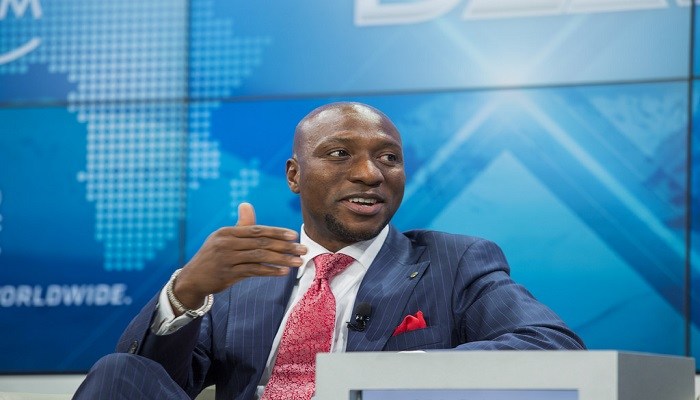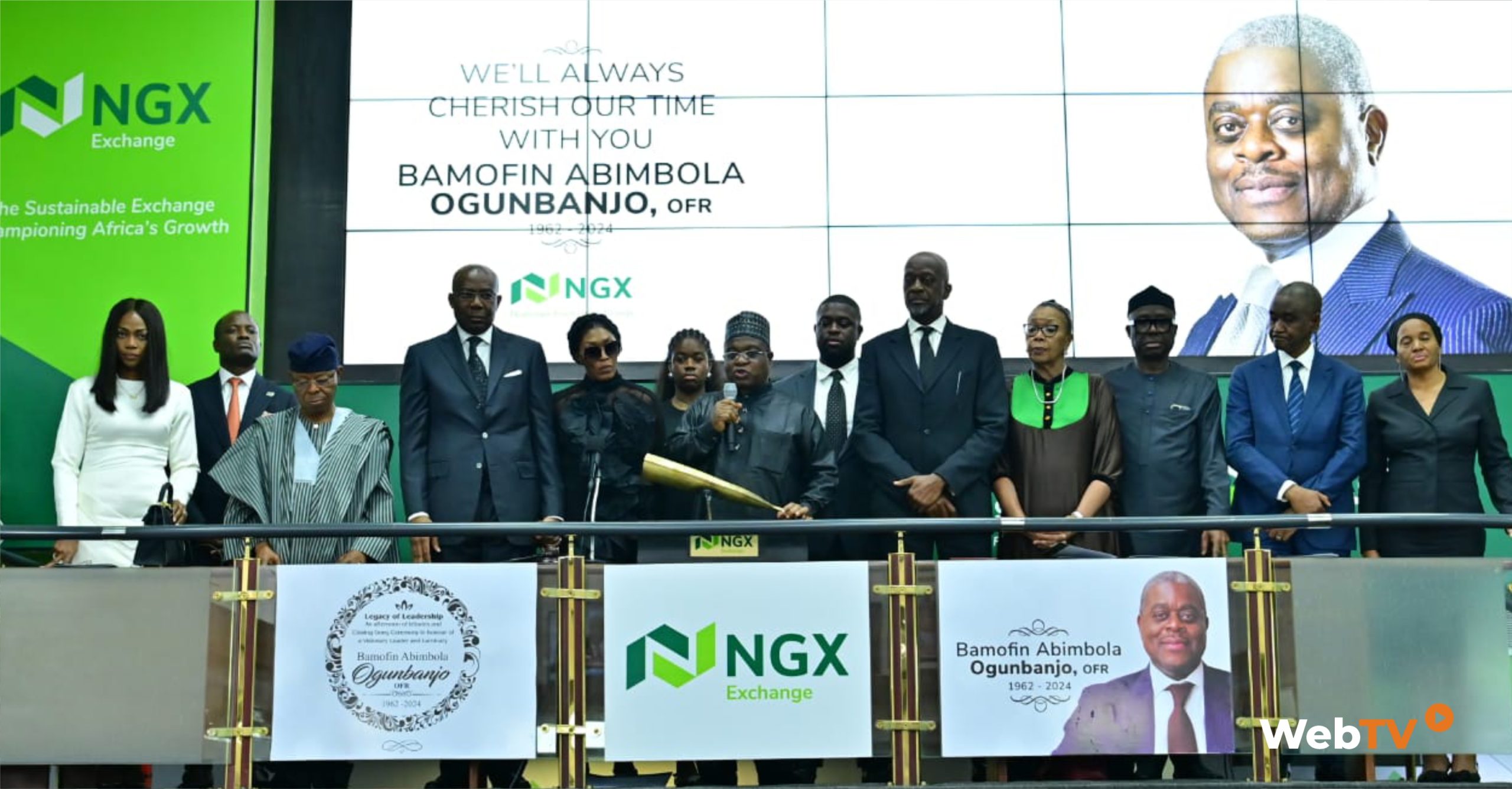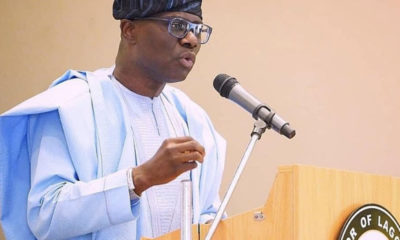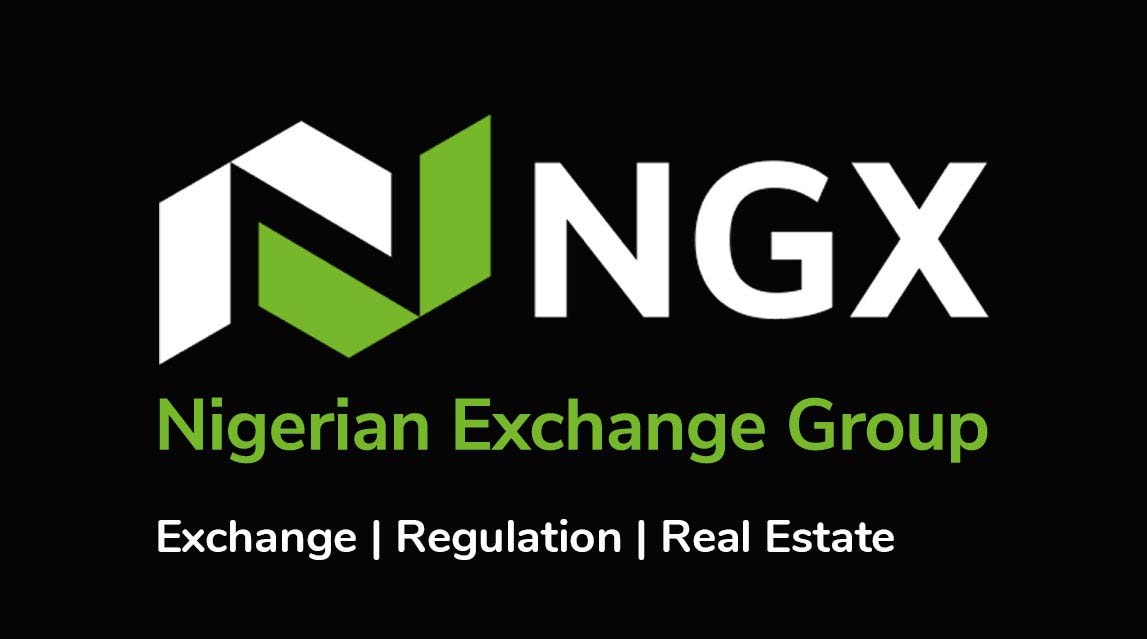Business
Sanwo-Olu, SEC, NGX, IFC Renew Call For Gender-Focused Initiatives

In the hope of creating increased opportunities for women in leadership, employment, and entrepreneurship in the Nigerian private sector, Governor, Lagos State, Babajide Sanwo-Olu, the Securities and Exchange Commission (SEC), the Nigerian Exchange Limited (NGX) and the International Finance Corporation (IFC) have all renewed calls for more gender-focused initiatives.
The calls were made at the inaugural edition of the Gender Leader Awards (GLA) held in Lagos on Thursday.
Being implemented under the Nigeria2Equal (N2E) program, the GLA is designed to recognize and celebrate private sector companies leading the way in gender equality performance. The hybrid event brought together captains of industry, capital market regulators, policymakers, and investors among others.
Delivering his keynote address, Sanwo-Olu, commended the IFC and NGX.
According to him, the programme is transforming the landscape for gender equality across the nation. He noted that no nation can achieve its full potential without harnessing the full opportunity women present.
In his words, “Gender equality is not only a normal imperative, but also an economic necessity, as it is essential for sustainable development and the overall prosperity of our nation.
“Therefore, I am proud to say that Lagos State is at the forefront of these efforts, and we are dedicated to promoting initiatives that empower women and girls and provide equal opportunities for all.
“We know that women face challenges but when they do, they face them squarely. We have also seen that when women are in the picture, things move faster, we get value and we see quicker and better results”.
Thereafter, he commended the companies who participated in the Nigeria2Equal programme while reassuring that his administration is willing to partner with more organisations that focus on promoting interest in women and the girl child in the society and the country at large.
“Your unwavering dedication to reducing gender gaps and fostering a more equitable workplace serves as an inspiration for us all.
“As you celebrate your accomplishment, let us keep instilling beliefs around gender diversity and continue to challenge the status quo, break down barriers and ensure that men and women alike have equal opportunity to contribute to the growth and prosperity of our nation”, Sanwo-Olu said.
In her opening remarks, Regional Director, Central Africa, Liberia, Nigeria and Sierra Leone, IFC, Dahlia Khalifa, citing a World Bank report, pointed out that the global economy suffered a staggering loss of $172 trillion, due to the disparities in lifetime earnings between women and men.
A loss, she described as global, which all economies are suffering.
“When there is an ecosystem that provides equal opportunities for women and men, more women thrive and that can contribute more meaningfully to Nigeria’s economic growth. Increasing women’s participation in leadership positions can foster diversity”, Khalifa said.
Corroborating Khalifa, Chief Executive Officer, NGX, Temi Popoola, said that as a leading multi-asset exchange catalysing Africa’s sustainable development, NGX’s commitment to business practices that support diversity and inclusion is resolute.
Popoola stated that all stakeholders in the market and society at large have a responsibility to drive change not only within organisations but in society at large.
“We must employ our influence to advocate for policies and practices that promote gender equality. We must challenge the status quo and actively work towards dismantling the systemic barriers that hold women back”, he said.
In a goodwill message, Director-General, SEC, Lamido Yuguda, who was represented by Deputy Director, Exchanges at SEC, Mahmud Mukthar, lauded NGX and IFC’s efforts and called on companies to engage in activities that promote gender equality and the creation of more opportunities for women to ensure a more inclusive capital market and the economy as a whole.
“As a regulator, with the mandate of protecting investors, the SEC welcomes all initiatives that promote investor confidence and enhance the efficiency of the capital market. I assure you, the SEC has continued support, engagement and collaboration in providing a level playing field for all listed companies to thrive,” he said.
Business
Savannah Energy Provides Unaudited FY 2024 Trading Updates

Savannah Energy has shared a trading update on its Nigerian operations and other markets in Africa, including up-to-date cash collections in its Nigerian business.
According to the update, made available on Thursday in Lagos, its gross production in Nigeria averaged 23.1 Kboepd for FY 2024, broadly in line with the prior year’s 23.6 Kboepd, of which 88% was gas (FY 2023: 91%).
On the update, CEO of Savannah Energy, Andrew Knott, said, “I am pleased to provide a FY trading update which demonstrates the continued progress we have made in 2024, a year which saw the highest level of cash collections ever recorded by our Nigerian business. 2025 is expected to be an exciting year for our Company: we have a large planned operational programme in Nigeria which is anticipated to enhance both our oil and gas production levels and capacity; we intend to progress our R3 East oil development project in Niger; we continue to pursue key acquisitions in the upstream oil and gas space; and we continue to seek to build our power business.
“Fundamentally, Savannah remains unequivocally an “AND” company, seeking to deliver strong performance both for the short AND long term across multiple fronts, and pursuing growth opportunities in both the hydrocarbon AND power sectors.”
The update It also shows that it generated a Total Income of US$393.6 million in 2024, compared to FY 2023’s US$289.8 million. This consists of Total Revenues of US$258.7 million and Other operating income of US$134.9 million.
The report also shows that Savannah’s FY 2024 Total Revenues were ahead of the previously issued financial guidance of greater than US$245 million, while FY 2024 financial guidance is reiterated for Operating expenses plus administrative expenses at ‘up to US$75 million’. The company expects its FY 2024 capital expenditure to come in lower than planned (previously guided at ‘up to US$50 million’) due to the phasing of spend.
ALSO READ: CSR: Dangote Awards Scholarships To 473 Students
According to the update, Savannah’s cash collections in 2024 amounted to US$248.5 million, a slight increase from the US$206 million it received in 2023. The report further shows that its cash balances as at 31 December 2024 stood at US$32.6 million, compared to the 31 December 2023 figure of US$107.0 million.
The report shows that the company’s midstream subsidiary, Accugas Limited, had as at 31 December 2024 drawn down on its NGN332 billion of the NGN Transitional Facility, with the resulting funds being converted to US$, which, along with cash held, was used to partially prepay the existing Accugas US$ Facility, leaving a balance as at 31 December 2024 of approximately US$212.3 million.
The report also provided new updates on Accugas’ US$45 million Uquo Central Processing Facility (“Uquo CPF”) compression project in Nigeria, noting that its commissioning which will enable the expansion of gas production in the medium term is well underway.
The report highlighted the progress being made in the procurement process of long lead equipment in Nigeria for a potential two-well drilling campaign on the Uquo Field in H2 2025, with an additional gas development well expected to add up to 80 MMscfpd of supplemental production capacity and a potential exploration well targeting an Unrisked Gross gas initially in place (“GIIP”) of 154 Bscf (25.7 MMboe) of incremental gas resources.
The update shows that progress is also being made in the planned Savannah acquisition of Sinopec International Petroleum Exploration and Production Company Nigeria Limited, whose principal asset is a 49% non-operated interest in the Stubb Creek oil and gas field (“Stubb Creek”), with regulatory approval and completion being targeted in Q1 2025. Following the completion of the acquisition, Savannah intends to commence an expansion programme which is anticipated to increase Stubb Creek gross production from an average of 2.7 Kbopd in 2024 to approximately 4.7 Kbopd.
In Niger, Savannah continues to seek to progress its 35 MMstb (Gross 2C Resources) R3 East oil development in South-East Niger, while it continues to push for a potential alternative transaction structure to acquire a material stake in producing oil and gas assets in South Sudan as previously announced on 20 December 2024.
On the renewable energy front, the update shows that Savannah has up to 696 MW of renewable energy projects currently in motion, including the up to 250 MW Parc Eolien de la Tarka wind farm project in Niger and the up to 95 MW Bini a Warak hybrid hydroelectric and solar project in Cameroon. A firm believer in Africa’s transition to renewable energy, Savannah continues to target a portfolio of up to 2 GW+ of power projects in motion by the end of 2026.
Business
Nigeria Can Achieve 5.5% GDP Growth – NESG
The Nigerian Economic Summit Group (NESG) has projected that the country has the potential to achieve a 5.5% growth in Gross Domestic Product (GDP) if critical policy reforms are sustained.
This was disclosed on Thursday during the launch of the NESG’s 2025 Macroeconomic Outlook report.
Speaking at the event, the Chief Economist and Director of Research & Development at NESG, Dr. Olusegun Omisakin, highlighted the need for more efficient policy implementation to unlock Nigeria’s economic potential.
READ MORE: Davido Is Richer Than His Billionaire Father – Ibrahim Chatta Claims
“We believe at the optimal level, if we embark on more efficient policy reforms, the Nigerian economy has the potential, the GDP to end up at 5.5 per cent, and we believe that this is achievable,” Omisakin stated.
More to follow……….
Business
CBN Approves Release Of Nigerian FX Code
The Central Bank of Nigeria (CBN) has announced the release of the Nigerian Foreign Exchange (FX) Code, a set of guidelines designed to promote ethical conduct among authorized dealers in the country’s FX market.
In a statement, the apex bank disclosed that the official launch of the Code would take place on Tuesday, January 28, 2025, at the CBN Head Office Auditorium in Abuja.
READ MORE: Dangote Denies Culpability In Pumping Up Petrol Price
“The Central Bank of Nigeria has approved the release of the Nigerian Foreign Exchange (FX) Code as a guideline to the banking industry to promote the ethical conduct of authorised dealers in the Nigerian Foreign Exchange Market,” the statement read.
The introduction of the FX Code is expected to enhance transparency, accountability, and professionalism within Nigeria’s foreign exchange ecosystem, aligning it with global best practices.
The event is anticipated to attract key stakeholders in the financial and banking sectors, as well as representatives from authorized FX-dealing institutions across the country.




















